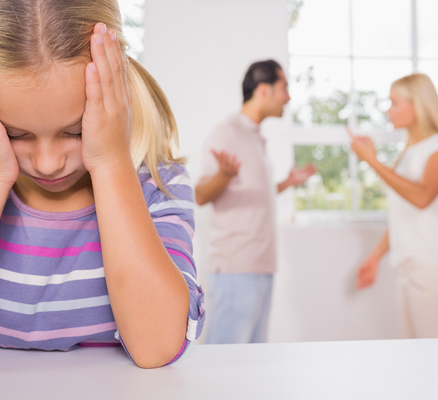These feelings are often worsened by the fact that many children have to move home and sometimes school when parents separate, and most families in this situation come under some financial strain, even if they did not have money worries before.
Even if the parental relationship had been very tense or violent, children may still have mixed feelings about the separation. Many children hold onto a wish that their parents may get back together.
Whatever has gone wrong in the relationship, both parents still have a very important part to play in their child's life.
Emotional and behavioural problems in children are more common when their parents are fighting or separating.
Children can become very insecure.
Insecurity can cause children to behave like they are much younger and therefore bedwetting, 'clinginess', nightmares, worries or disobedience can all occur. This behaviour often happens before or after visits to the parent who is living apart from the family
Teenagers may show their distress by misbehaving or withdrawing into themselves. They may find it difficult to concentrate at school.
Parents who are separating can help their children. Certain tips for the parents, which can help reduce the trauma for the children witnessing their parents divorce include:
1. Make sure that the children know they still have two parents who love them, and will continue to care for them.
2. Protect you children from adult worries and responsibilities.
3. Make it clear that the responsibility for what is happening is the parent's - and not the children's.
4. Be open and talk. Your child not only needs to know what is going on, but also needs to feel that it's OK to ask questions.
5. Reassure them that they will still be loved and cared for by both parents.
6. Make time to spend with your child.
7. Be reliable about arrangements to see your child.
8. Show that you are interested in your child's views, but make it clear that parents are responsible for the decisions.
9. Carry on with the usual activities and routines, like seeing friends and members of the extended family.
10. Make as few changes as possible. This will help your child feel that, in spite of the difficulties, loved ones still care about them and that life can be reasonably normal.
It is important not to pull your child into the conflict. The following tips may be useful.
While its good to incorporate the above strategies, make sure you also avoid the DON'TS . Some of the DON'TS are:
1. Ask your child to take sides: Who would you like to live with, darling?
2. Ask your child what the other parent is doing.
3. Use your child 'as a weapon' to get back at your ex-partner.
4. Criticise your ex-partner.
5. Expect your child to take on the role of your ex-partner.
If you are finding it difficult to help your child cope, you may want to seek help outside. Some families may need specialised help from the local child and adolescent counsellor. However, if managed sensitively, most children can adapt well to their new circumstances and do not have difficulties in the longer term.



